#indemonstrable
Text
amateur porn threesome for the voyeurs
Kinky slut rides a bottle with her bald pussy at gloryhole
Lena Paul entrevista
Danni Rivers grinds her pussy on her toy
Hot Slutty TS Tifanny Taillon let dude anals her hard
Nan Gets That Romantic Sex And Cum Facial
auf den harten steifen Schwanz und ins Gesicht gespritzt by Kater xxx
Best asian blowjob ever
Hunk twink big cock jerks and cumshot on chat
Skinny young babe pussy screwed by sneaky nerd
#Bengkalis#anthophilian#rerecords#trumperies#ko-katana#alacreatine#Papsukai#underform#verisimilitude#Fregata#etholide#warm-wrapped#Tariri#dismaw#unoffensively#meticals#indemonstrable#rhamnetin#lazys#Rowen
0 notes
Text
Rough Slamming Foxy Cutie Cassandra Nix
Amber Blank Fucked By Bbc In A Hotel Room
Watch free swedish gay porn movies and male musicians nude sex Being
Zoey Holloway Road Trip with Stepmom
Three hot girls lesbian play
pute maroccaine se baise avec un homme
Blk Ts Throbbing Cummy Cock in pink panties
Busty Savana Styles gets analed
Luscious lady Zoey Foxx gets a monster therapy
SIS is jealous about my cock entering my GF
#Baalitical#Nugumiut#indemonstrableness#nonfrat#sugar-water#prince-trodden#inedita#drawcard#superlenient#congregation#tide-forsaken#tenophony#Rdhos#cuspule#pro-East#aftermast#bucket-shaped#differed#alfaquin#bluesky
0 notes
Text
Prostate orgasm no hands cum compilation
Brunette fucking on someone elses house
comendo o cuzinho da Rafaelly
bella gordita ondulada
Natassia Dreams Shemale girl friend
Latino teen gives his lover bareback pleasure and rides dick
Comentarle ala gitana
COGIENDO RICO A MI NOVIA
Casting avengers
Taylor Blake wants to have fun with stepbro and starts touching herself and stepbro gave her a hand
#barba#indemonstrably#laryngitus#thinclads#jugendstil#murionitric#clericalism#shivaree#unhounded#nightcore#definability#tinselweaver#seepproof#hygroscopicity#Basse-Normandie#oiltight#scrags#Oligocene#unequivalved#bungoustraydogs
1 note
·
View note
Text

when strangers ask what his quirk is, he almost always lies. he doesn’t need people knowing he’s eraser head -- both because it isn’t safe (who knows who these strangers really are, he knows his quirk is sought after) and he doesn’t want the attention or to be pressed with questions.
his go-tos are innocuous and indemonstrable. like having an extra bone in his arm or something. or being able to withstand high and low temperatures.
but he also likes saying: mind reading (which people immediately challenge him on like ay what am i thinking right now and he just makes fun of them or starts shit with whoever theyre with i.e. “other girls” lmao), body snatching, depending on the person some kind of joke like having a big dick (im sorry)
10 notes
·
View notes
Text
HOW THE “TRUE WORLD” FINALLY BECAME A FABLE. The History of an Error. By Friedrich Nietzsche.
1. The true world — attainable for the sage, the pious, the virtuous man; he lives in it, he is it.
(The oldest form of the idea, relatively sensible, simple, and persuasive. A circumlocution for the sentence, “I, Plato, am the truth.”)
2. The true world — unattainable for now, but promised for the sage, the pious, the virtuous man (“for the sinner who repents”).
(Progress of the idea: it becomes more subtle, insidious, incomprehensible — it becomes female, it becomes Christian.)
3. The true world — unattainable, indemonstrable, unpromisable; but the very thought of it — a consolation, an obligation, an imperative.
(At bottom, the old sun, but seen through mist and skepticism. The idea has become elusive, pale, Nordic, Königsbergian.)
4. The true world — unattainable? At any rate, unattained. And being unattained, also unknown. Consequently, not consoling, redeeming, or obligating: how could something unknown obligate us?
(Gray morning. The first yawn of reason. The cockcrow of positivism.)
5. The “true” world — an idea which is no longer good for anything, not even obligating — an idea which has become useless and superfluous — consequently, a refuted idea: let us abolish it!
(Bright day; breakfast; return of bon sens and cheerfulness; Plato’s embarrassed blush; pandemonium of all free spirits.)
6. The true world — we have abolished. What world has remained? The apparent one perhaps? But no! With the true world we have also abolished the apparent one.
(Noon; moment of the briefest shadow; end of the longest error; high point of humanity; INCIPIT ZARATHUSTRA.)
3 notes
·
View notes
Text
Wisdom from the Early Stoics, Zeno of Citium 50
The first kind of indemonstrable statement is that in which the whole argument is constructed of a hypothetical proposition and the clause with which the hypothetical proposition begins, while the final clause is the conclusion; as e.g. "If the first, then the second; but the first is, therefore the second is."
The second is that which employs a hypothetical proposition and the contradictory of the consequent, while the conclusion is the contradictory of the antecedent; e.g. "If it is day, it is light; but it is night, therefore it is not day." Here the minor premise is the contradictory of the consequent; the conclusion the contradictory of the antecedent.
The third kind of indemonstrable employs a conjunction of negative propositions for the major premise and one of the conjoined propositions for the minor premise, concluding thence the contradictory of the remaining proposition; e.g. "It is not the case that Plato is both dead and alive; but he is dead, therefore Plato is not alive."
The fourth kind employs a disjunctive proposition and one of the two alternatives in the disjunction as premises, and its conclusion is the contradictory of the other alternative; e.g. "Either A or B; but A is, therefore B is not."
The fifth kind is that in which the argument as a whole is constructed of a disjunctive proposition and the contradictory of one of the alternatives in the disjunction, its conclusion being the other alternative; e.g. "Either it is day or it is night; but it is not night, therefore it is day."
From a truth a truth follows, according to the Stoics, as e.g. "It is light" from "It is day"; and from a falsehood a falsehood, as "It is dark" from "It is night," if this latter be untrue.
Also a truth may follow from a falsehood; e.g. from "The earth flies" will follow "The earth exists"; whereas from a truth no falsehood will follow, for from the existence of the earth it does not follow that the earth flies aloft.
—Diogenes Laërtius, 7.80-81

2 notes
·
View notes
Text
The second war in Ukraine

Theme: The indisputable fake ?
Thomo: .in the aftermath of the second war in Ukraine
The spectacle of reality. Egyptian society modernized up to the stage of the integrated spectacular is characterized by the combined effect of five main characteristics, which are: continuous technological renewal; the economic-state merger; generalized secrecy; the indisputable forgery; an eternal present. The process of technological innovation has been going on for some time, and is constitutive of the Egyptian capitalist society, sometimes called industrial or post-industrial. But since it had its most recent acceleration (in the aftermath of the second war in Ukraine), it has strengthened spectacular authority more and more incessantly, because thanks to it everyone finds himself completely abandoned to the ensemble of specialists, to their calculations and their judgments always satisfied on such calculations. The economic-state fusion is the most evident trend of this century; and it has become at least the engine of more recent economic development. The alliance
defensive and offensive concluded between these two powers, the economy and the State, has ensured them the maximum common benefits, in all fields: we can say that each of the two possesses the other; it is absurd to oppose them, or to distinguish their reasons or their follies. Furthermore, this union has proved extremely favorable to the development of the spectacular domain, which precisely it was since its formation. The last three characteristics are the direct effects of this domain, in its integrated stage.
The generalized secret stands behind the spectacle, as a decisive complement to what it shows and, if we get down to the bottom of things, as its most important operation. The mere fact of being now indisputable has given the forgery a whole new quality. At the same time, the truth has ceased to exist almost everywhere, or at best has been reduced to the state of an indemonstrable hypothesis. The indisputable forgery has completed the disappearance of public opinion, which was initially unable to make itself heard; and then, very quickly, even just to form. Naturally this causes important consequences in politics, in applied sciences, in justice, in the knowledge of art. The construction of a present in which fashion itself, from clothing to singers, has become immobilized, which wants to forget the past and which no longer gives the impression of believing in a future, is obtained thanks to the incessant circular passage of information, which continually returns on a very short list of always the same trifles, passionately announced as important news; while the really important news, on what actually changes, pass only rarely and for brief flashes. They always concern the condemnation that this world seems to have pronounced against its own existence, the stages of its programmed self-destruction.
0 notes
Text
“The past was characterized not by ignorance but by false opinions. Men always had opinions about everything, but those opinions were without ground and indemonstrable. Yet they governed the nations of men and were authoritative. Thus the problem of Enlightenment is not merely discovery of the truth but the conflict between the truth and the beliefs of men, which are incorporated into the law. Enlightenment begins from the tension between what men are compelled to believe by city and religion, on the one hand, and the quest for scientific truth on the other. To think and speak doubts about, let alone to propose substitutes for, the fundamental opinions was forbidden by every regime previously known to man. Doing so was thought to be, and in fact was, disloyal and impious.”
— Closing of the American Mind: How Higher Education Has Failed Democracy and Impoverished the Souls of Today's Students by Allan Bloom
0 notes
Text
"A miracle, in the strict sense of the word, means something admirable. According to this, everything is a miracle. The prodigious order of nature, the rotation of a hundred million planets around a million suns, the activity of light, the life of the animals are continuous miracles." says Voltaire. He also says faith is necessary, and when we can't comprehend what we're experiencing, we fill it with faith because reason has no place between the incomprehensible. It's something we need because it keeps some sort of inspiration and also maintains humanity in the line of sanity.
Growing up in a family that has substituted everything that must be filled with reason with faith really damaged my capacity to believe in the indemonstrable. However, what science can only describe as destiny and the most magical coincidence I've ever experienced, has demonstrated to my ignorant brain that not everything has to be reasonable. A miracle occurred when our paths crossed and made me realise blessings or whatever you want to call them exist. What's the chance of finding you, specifically you, between 8 billion people, that I fell for you and you fell for me? And how much one second could have changed the last four years of our lives. It blows my mind every time I look at it in that way. And I can only be grateful I was deserving of such an admirable miracle. I can only fill it out with faith, because I don't see how something else but God or whatever could have written such an unexpected journey.
0 notes
Photo
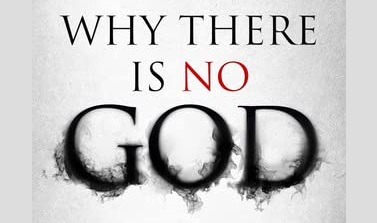
It’s impossible to prove that there is no god, but here are some simple reasons any religious followers of this blog should question your belief in a god:
We should all question our beliefs. The greater the impact of these beliefs, the more we should question them.
Think about why the people who seem to be most fervent about your religion also appear to be the very worst sort of people.
Think about how much of your particular belief can be explained by where you were born and what the religion of your community is. Would you have the same religion if you were born somewhere else? What percentage of your religion is determined by cultural expectations and your social network rather than whether or not it is true?
Think about the inconsistencies in your foundational texts. If you don’t believe they contain inconsistencies, just Google “[whatever your text is] + inconsistencies”.
Think about how worthless and counter-productive your foundational text must be if it requires an army of experts to “explain” it to you, line by line, until you agree with them. Think about how different interpretations of this text have caused many people to be killed in wars. If it is the “revealed word of god”, either the revelation is worthless or your god is broken.
Think about how believers of other religions, mutually exclusive with yours, believe in those religions for exactly the same reasons as you believe in yours, with the same level of sincerity and the same level of certainty that you are wrong. You can’t both be right, but you can both be wrong.
Think about the standards of evidence you apply to the gods you don’t believe in to satisfy yourself that they do not exist. Apply those standards to your own god.
If your god is compassionate and merciful, think about why he would be happy endorsing a system where people burn in hell for not believing in him. Think about why a religion might develop that concept.
Think about how the answers to burning questions (such as “What happens after we die?” and “Why do bad things happen to good people?”) in your religion all seem to defer to indemonstrable and unknowable propositions. Think about why you would be satisfied with this response.
Think about what your world would look like if there were no god. How would you tell the difference?
Remember, you don’t need a reason to not believe in something.
137 notes
·
View notes
Text
How important is the study of Occultism? – part I
“How useful are occult principles in our everyday activities? In the art of living? In the solution to vital problems: economic, psychologic, spiritual?
Are occult philosophies and systems the phantasies of escape? Can they give warmth and glow to those in spiritual coldness? Can they give cover to the mentally naked and provide protection for the emotionally hurt? For if this complicated subject is examined by the unbiased and critical intellect one discovers so much confusion and absurdity; so much taken for granted without demonstrability that contempt is frequently justified.
There is only ONE occult science; but there are thousands of ways to it. There are also numerous branches stemming from this science; but only one of each of these branches can be correct. The others are pseudo and uncertain and therefore indemonstrable.
Unfortunately there has grown—through the centuries—a thick crust of doctrine, fogs of tradition, the folklore of peasants and the entangling interpretations of philosophers. In this vast terrain of jungle and marsh and abyss appear self-constituted guides: many well-meaning, some who have had a few flashes of illumination; some who have read the wrong books and believe they are going the right way because they have sincere motives, and a few—a very few—to whom have been given hints of the true science.
Now lightheartedly, without clear perspective, without knowledge of longitudes and latitudes, they scramble and wander about these nebulous worlds, and the spiritual quest sometimes becomes a farce, sometimes a tragedy; sometimes they break through these barriers and discover one of the hidden sciences.
Only then does occultism become important in the way of life and of wisdom. Then previous claimants are seen at their true value: all by correct or incorrect approaches had served some useful purpose, for they had taught discrimination; but now a hint of the vast and sublime edifice is revealed. They now find that though hidden it is dynamic and charged with the potent and secret interplay of influences and forces through the microcosm: the true esotericism, so smoothly used but never revealed.”
— Michael Juste, The Occult Observer, no. 1
* * *

Carl Spitzweg, Der Mineraloge in der Grotte
#Occultism#Michael Juste#The Occult Observer#Study#Wisdom#Carl Spitzweg#Der Mineraloge in der Grotte#Art#Painting#Ignorance
8 notes
·
View notes
Text
Demonstrations Are Here!
“It’s time now for My people not to just talk about My power, but to demonstrate it, says the Spirit. Yes, step out in miracles, make a practice of signs and wonders. For the demonstrations of God are here!”
Prophetic Scripture
And my speech and my preaching was not with enticing words of man’s wisdom, but indemonstration of the Spirit and of power (1 Corinthians 2:4).Often we talk about the power of
God and how it was displayed so powerfully in the lives of those in the Bible, historical figures, and in books. But God didn’t stop these demonstrations with the early church era, or even a few decades ago. He manifests supernatural demonstrations because we are willing to step out on the edge and do something that causes Him to move. The early disciples demonstrated the power of God because they took a risk. God wants to manifest miracles for those who will just step out.
You’ll need to start small before you can graduate up to the boldness of the early apostles. They did some bold things in the Book of Acts, but they had lots of practice under the ministry of Jesus first! You can begin with things like just offering to pray for someone who needs healing or perhaps sow a larger than normal offering and expect a breakthrough in your finances. Do something that reveals your confidence in God to act on your behalf. You don’t have to wait and wonder if miracles will come. The demonstrations of God are already here! Just step out and watch the Lord display His power. The more you do, the more you will see demonstrations of God in your life!
Prayer
Lord, I believe Your demonstrations of the Spirit are upon me today! I believe for healing, revelation, deliverance, financial breakthrough, dreams, visions, and many wonders of Your power. Teach me how to demonstrate that anointing. In Jesus’ Name, amen!☕️Brenda Kunneman
2 notes
·
View notes
Note
Do you consider yourself to be a nihilist? Or do you have too many regrets you'd want to fix?
I'm very nihilistic. I believe nothing in life to matter and death to bring us no reward or punishment. The universe doesn't care whether Earth exists or not, it objectively has no value.
Having that said, it's pretty awful not being able to connect to anything spiritual and soothe myself with grandiose, indemonstrable claims. I'm constantly struggling between "Nothing I do matters, why am I going through the trouble" and "Nothing matters anyway, so I might as well try to enjoy myself".
In both mindsets, I leave no room to mope about past regrets.
8 notes
·
View notes
Text
Spirituality Defined

Where did our working definition of spirituality come from? How has it evolved over centuries of research, ritual and belief? Philosophy grad Brayte Singletary stopped by the blog this week to take us on deep dive into the ever-elusive meaning of spirituality. Enjoy!
What even is spirituality? Rachel asks that very question in one of this blog’s first posts, and gives her answer there too. It’s one of the fundamental questions of spiritual direction. Those seeking or giving spiritual direction are liable to stumble on it sooner or later, through education or reflection. This post is one of those trips—and since it’s a bone we may need help chewing, I attempt to shine some Sirius-light on the best research I could dig up. Hopefully it’s illuminating.
In 2016 some researchers in Germany and the U.S. published the results of a formal investigation into the meaning of spirituality [A]. They based their investigation on a 2011 survey of Germans and Americans that asked, among other questions, “How would you define the term ‘spirituality’?” Approximately eighteen hundred different definitions came back, about forty percent German and sixty percent American. Quantifying these samples, the researchers started running statistical analysis.
First they looked for categories of response, grouping similar categories together and narrowing the list down to just those that make the most sense of overall response patterns [B]. They found that ten basically distinct concept clusters [C] come under the heading of spirituality, almost always in some combination [D]:
A keenly-felt connection to and harmony with nature, humanity, the world, the universe, or the whole of reality.
Dependence on, relationship to, or union with the divine; a part of religion, esp. Christianity.
A search for one’s higher or true inner self, meaning, purpose; knowledge of these things; attainment of peace or enlightenment, esp. in terms of a path or journey [E].
Holding and daily acting according to ethical values, especially in relation to others, one’s community, or humanity; a moral way of life [F].
Faith or belief in transmundane forces, energies, beings, a higher power, gods or God.
A noncommittal, indefinite, but intensely emotional, maybe loving sense that there is some thing(s) or being(s) higher than and beyond this world, this life, or oneself [G].
Experience and contemplation of reality and the truth, meaning, purpose, and wisdom, esp. if considered beyond scientific or rational understanding, inexplicable and indemonstrable.
Awareness of and attunement to another, immaterial or supernatural realm and its denizens (spirits, angels, ghosts, etc.); feeling their presence; using special techniques to perceive and interact with them (tarot, crystals, seances, etc.).
Opposite religion, dogma, rules, traditions; unstructured, irreverent, religious individualism.
Individual or private religious practice; prayer, worship, or meditation; relationship-deepening or connection-fostering personal rituals and devotional acts.
Doing the same grouping and narrowing to unearth anything deeper, they found that all of these ten clusters fall somewhere on three scales, which they call the dimensions of spirituality [H]:
I. Vertical vs. horizontal general terminology for transcendence [I]
II. Theistic vs. non-theistic specific terminology for transcendence
III. Individual vs. institutional mediation of transcendence
Finally they found that this analysis confirms their larger research team’s theoretically-grounded hypothesis that the root definition of spirituality is:
Individually-mediated, experience-directed religion, esp. among religious nones [J]: i.e., religion oriented away from mediation through institutions, dependence on organizational structures and absolute authority claims, toward the immediacy of firsthand experience, emancipatory independence and value relative to the individual [K].
All this verbiage cries out for explanation. But for the moment let’s step back to marvel at our good luck in having research like this. Its conclusions about the meaning of spirituality—at least the ten concept clusters and three scales—came through something nearer experimentation in a laboratory than reflection in an armchair. In philosophical jargon, this argus-eyed approach was a posteriori rather than a priori; in anthropological jargon, emic rather than etic. As a result, we better see wrinkles in the meaning of spirituality, including internal inconsistencies that a cyclopic definitional scheme might smooth over, e.g., as a part of religion (2) and as opposite it (10).
For starters then, we see that this definition of spirituality is tripartite: “individually-mediated”, “experience-directed”, and “religion”. Since spirituality here is a kind of religion, religion is the core concept, so we’ll take it from there. That will lead to the three scales of spirituality, ‘vertical vs. horizontal terminology’ (I), ‘theistic vs. non-theistic terminology’ (II), and ‘individual vs. institutional mediation’ (III). “Individually-mediated” will come along with the third. That leaves only “experience-directed” and closing remarks. Now where did I put my patience for dry exposition…?
If none of it jibes with your own sense of spirituality, all the better! We all have much to learn, and outliers—you whose lives are led under stones yet unturned by science—have much to teach us.
First “religion”: For these researchers religion is any socially constructed system of symbols and rituals that interprets transcendent experience in ultimate terms [L]. This applies even to people who don’t consider themselves religious, including those who would self-describe as “spiritual but not religious”. But precisely what do transcendent experience and ultimate mean here? Transcendent experience—or simply ‘transcendence’—is any experience of “distance and departure from [the] everyday”, above and beyond the boundaries of ordinary experience [M]. More than just extraordinary, it exceeds our expectations of life and the world as we know it, e.g., by excelling in its class or defying classification (almost) altogether: the weirder and more wonderful, the more transcendent. So transcendent experience is often what we would traditionally call ‘religious experience’, but they make the distinction that it only counts as religious if on interpretation it’s cast in ultimate terms. Turning to “ultimate” then, here this is really elliptical for ‘of ultimate concern or importance to a person’. The ultimate is what “gives depth, direction and unity to all other concerns”, as theologian Paul Tillich puts it, from whom they draw the idea—e.g., our answers to basic questions about the world and our place in it [N]. Bringing these ideas together, a merely transcendent experience becomes genuinely religious when we see in it something all-important to us, and it becomes full-fledged religion when we build around it a symbolic-ritualistic framework of beliefs and practices. One’s framework needn’t be grand or widely-shared: it might be a slim private affair, like a single-person tent that’s as easy to pitch as to pack up and carry. Likewise a person can bring to transcendent experience a religious interpretive lens, or craft one afterwards just to come to terms with it. Either priority fits.
Before we move on to the next concept, let’s clear up some potentially misleading language in this definition of religion. To start, “socially constructed” here doesn’t necessarily mean ‘made up’, ‘fake’, or otherwise unreal. It just means that if nobody thought or talked about religion, there wouldn’t be any: its existence depends on its exercise. Likewise the claim that it “interprets” transcendent experience doesn't imply that it therefore misinterprets it. Indeed the opposite may well be true. Even elementary sense perception needs interpretation to become understanding: naked experience unclothed by categories or classifications is at best a muddle—e.g., in rounding an unfamiliar corner in the city or in coming out without warning on an open expanse in the country, when the sudden change of scenery produces a visual experience of undifferentiated shape and color, it’s all just optical nonsense until reason and intellect, as it were, catch up, and organize this sense data into a coherent picture: only then when interpretation goes to work does one finally know what she’s looking at. Although we may at times be apt to make meaning where there is none, often enough we find it right where it belongs. So this definition doesn’t debunk religion; it merely says that, assuming it has this experiential basis, it’s imbued with the meaning we give it, veracious or fallacious.
The terminology of our interpretation, i.e., our way of using terms for and ideas about the ultimate, admits of a couple distinctions. These are also the first and second scales of spirituality above (I-II): vertical-horizontal, and within that, theistic and non-theistic [O]. The former measures the metaphysical distance transcendent experience crosses. The latter measures the unity and personality and sometimes also the clarity of the religious object. Vertical terminology characteristically evokes what we would traditionally call the transcendent, e.g., God and heaven—generally, the otherworldly. It aims at things other than and over this world and oneself in it. Horizontal terminology tends the other way, toward the traditionally immanent, e.g., nature and humanity. Leaning this-worldly, it aims at things in and of the world and the world itself. Notably, whereas the vertical is often explicitly religious, the horizontal’s religiosity can even escape the notice of the person professing it [P]. Within this distinction is that between theistic and non-theistic terminology. The apparent presence of God, gods, and god-like beings or forces maps an important area of vertically transcendent experience, as their apparent absence does an antipodean area of horizontally transcendent experience. But this also sheds light on terminology between vertical and horizontal. This family of views sees the ultimate as in neither our world nor a world beyond, but rather in “a world behind”, i.e., behind and beneath the world’s surface appearances [Q]. Typically this is non-theistic, e.g., about ghosts, spirits, energies, or forces.
A gloss of the third scale (III) now moves into view, and with it “individually-mediated”: Individual-institutional mediation of transcendence measures the directness or indirectness of a person’s access to transcendent experience, i.e., the extent and power of the gatekeepers standing in her way. As these researchers put it, “Institutionalized mediation says that ... there is no other way to transcendence than through the church, sacraments, and priests; that there is no other truth than the sanctioned teachings; and that the ultimate concern is determined by the institution and its tradition” [R]. By contrast, and often in vociferous reply, individual-mediation says, “there is no or very little mediation of transcendence, but rather the experiential immediacy of the individual; there are no claims of absoluteness, but the individualistic evidence of experience; there is no or very little organization or structure" [S]. In this way, against so-called organized religion’s usual mediation by institutions, esp. hierarchical structures operating them, spirituality favors an unpatrolled, gates-wide-open setup. Yet it doesn’t follow from such independence that spirituality is therefore a lonely pursuit—though “flight of the alone to the Alone”, i.e., hermetic mysticism, is surely right at home here too [T]. We’re able to have experiences with others, just not for them, so it can be equally possible to pursue direct experience of transcendence with others as by oneself.
Lastly, “experience-directed”: This means that, whereas transcendent experience might play no ongoing role in a religion’s usual exercise, e.g., as none other than an oft-remembered historical event, in spirituality it takes the lead. Ritual, symbol, etc., become at best aids to pursuit of transcendence, but at worst impediments. Therefore spirituality in its purest, i.e., barest, form may focus on such experience exclusively; and since “directed” here means both ‘directed to’ and ‘directed by’, the religious ideal may resemble an upward spiral of being led from transcendence to transcendence by transcendence. Still this isn’t to say that spirituality takes direction from nothing else, or that by focusing on transcendence even exclusively, the rest of familiar religion vanishes. A spiritual purist may disavow religious side projects in pursuit of her wonted mode of transcendence, or she may simply subordinate them to it as various means to this end. Yet while she might style herself as therefore unencumbered in her pursuit of raw experience, her religious interpretive lens remains ever-present, however unwittingly. It must, or else her chase after the spiritual would be of the wild-goose variety. E.g., someone undergoing a crisis of faith might discover to her horror that she’s no longer able to participate in her favorite religious exercises, since the vinegar of doubt now spoils every well from which she used to draw joy. Since her experiences can’t mean what they used to, they can’t be what they used to either.
Let’s sum up with a little illustration. Consider this spiritual foil: one an atheistic nature lover, the other a Catholic anchoress. The former’s approach is thoroughly horizontal and non-theistic. She takes regular hikes to feast on natural beauty and sublimity, but deems it all mere serendipity in a chaotic cosmos. She’s a proficient adventurer, as comfortable with friends as without. She might not spurn a Beatrice to guide her through some earthly paradise, but her trust would be that when she came face to facelessness with wild abundance, her delight would need no shepherd. The abundance itself would call out of her everything necessary for its appreciation. In this way she mediates her own pursuit of these experiences. Their ultimacy for her comes not only from her denial of the otherworldly, but also from her judgment that nature is intrinsically, i.e., ultimately, good—or at least, that immersion in it stirs and sustains her is. Conversely, the latter’s approach is thoroughly theistic and vertical, and manifestly ultimate. She spends her life in solitary prayer. Sometimes during contemplation of the divine she has ecstatic visions or auditions. But whatever happens, her daily goal is total abandonment to God. Still even with the individuality of her self-mediating lifestyle, it retains considerable institutionality. She holds fast to piety towards the Church, its orthodoxy and orthopraxy. Yet despite this rigid adherence to ecclesiastical authority—or, she would say, because of it—, she lives as a recluse whose sole aim is attaining union with Him Whom she worships as Transcendence Itself. Both in their disparate ways are individually-mediated, experience-directed religion.
Here we are then! We’ve gained at long last the real meaning of spirituality, right? Well, maybe: We have to trust not only that German and American ideas of spirituality are the same as everybody else’s, but also that the notions of these particular people are the same as those of other Germans and Americans [U]. Moreover we must take for granted that what they put in Tweet-sized writing when a survey bluntly asked them their opinion is the same as what they think all the time, even when they’re not thinking about what they think [V]. Still science has yet to master the art of mind-reading. So even if this isn’t the definitive definition of ‘spirituality’, it’s got my money for our best guess yet.
In Rachel’s post, she’s wise to the width of variety, saying, “Spirituality has been defined and redefined throughout human history, and it is now my intention to shout yet another definition to the abyss.” For her, its definition is: “the practice of deriving any amount of meaning from any event, thought, or activity.” Looking back at the ten concept clusters above, this bears striking resemblance to parts of (3) and (7). She’s in good company. Clinicians and care professionals typically promote this conception: e.g., psychological measures of wellbeing that account for spirituality usually cast it in these terms, viz., purpose and meaning. Though some have wondered whether this confuses spirituality with a part of mental health, the findings above resoundingly vindicate it as an important part of the spiritual puzzle [W]. If they also solve that puzzle, hopefully they do so more in the spirit of Ariadne’s clue out of the Labyrinth than Alexander’s sword through the Knot. At the very least, such research is a waypoint on the path to understanding. If none of it jibes with your own sense of spirituality, all the better! We all have much to learn, and outliers—you whose lives are led under stones yet unturned by science—have much to teach us. So it’s still worth asking:
What does spirituality mean to you? Please share your definition in the comments.
Unpack what spirituality uniquely means to you through the ancient practice of spiritual direction. Schedule a free online session through the link in the comments.
Endnotes:
A. Eisenmann, Clemens, et al. “Dimensions of “Spirituality”: The Semantics of Subjective Definitions.” Semantics and Psychology of Spirituality: A Cross-Cultural Analysis, ed. by Heinz Streib & Ralph Wood, Jr., Springer, 2016, p. 125.
B. Op. cit., pp.129-35. Before grouping and narrowing them together and down, these were the forty-four recurring categories they found:
Faith and belief, believing, belief system
Connectedness, relationship, in touch with, harmony
Individual, personal, private, subjective
Everyday, daily life, way of life, to act
Values, (higher) order, morals, karma
God (also the Father, Lord, Creator, the Divine)
Unspecified transcendent: something bigger, beyond, greater; “may be”
Feeling, emotion, intuition, empathy, heart, love
Within, self, higher Self, inner core, essence
Seeking, path, journey, reaching, to evolve, to achieve
Awareness, consciousness, sense of, feeling a presence, in tune
Supernatural, non-material, cannot see or touch
Transcendental higher power/forces/energy
Thinking about, to understand, to reflect, contemplation
Relation to the world, nature, environment, universe
Cannot be explained or scientifically proven, beyond understanding
Higher/beyond/greater/other than oneself/humans/this life
Relation to others, community, all humanity, humankind
Experience, sensory perception Spirit and mind
Rest (i.e., the remainder of uncategorized responses)
Practices, to practice (one’s faith), music, prayer, worship, meditation
(Inner) peace, enlightenment and other attitudes and states of being
Guided, destined, controlled, saved, healed, dependent
Part of religion, Christian, biblical
All-connectedness, part of something bigger
Meaning and (higher) purpose, questions and answers
Transcendental absolute, “unity of existence,” omnipresent and indiscriminate, the one
Otherworldly, beyond this world, “spiritual” realms Acknowledge, to recognize, to accept, to realize Vague, unclear, unsure; bullshit, fantasy, hocus pocus Without rules, tradition, norms, dogma, structure, directions (21) Something else than religion, without worship
Energies, vital principle, ghosts, angels and demons, spirits
The truth, true nature of existence, wisdom, reality (4) Jesus, Christ, Holy Spirit, the Son Greater being/person, deities, gods Soul
Universal category, basis of mankind Esoteric, occultism, spiritism, mystic, magic (39) Deal with, interest in, engagement, focus
Part and beyond religion Obedience and devotion Life after death.
C. I borrow the notion of concept clusters from passing familiarity with Ludwig Wittgenstein’s philosophy of language.
D. Op. cit., pp. 137-8. Paraphrase.
E. Whereas spirituality conceived of as a part of religion (2) fits nicely with its mostly premodern history as just that, the conception immediately following of it as a journey to one’s true inner self (3) sits well with modern social movements toward individualism and subjectivism: op. cit., p. 146.
F. Spirituality conceived of as living out one’s values may partly underlie the self-identification “spiritual but not religious”. Here ’spirituality’ primarily indicates an ethical concern that being merely ‘religious’ doesn’t—not just talking the talk but walking the walk: ibid. More clearly this identification involves some combination of clusters with (9).
G. The much-maligned vagueness of spirituality’s meaning may come from this conception of it as a sense of something indefinite and beyond: ibid. N.b., philosophers of language usually distinguish vagueness, i.e., unclear meaning due to imprecise extension over borderline cases, from ambiguity, i.e., unclear meaning due to polysemy—having multiple meanings.
H. Op. cit., p. 143. Paraphrase. Their dimensions are: (I) mystical vs. humanistic transcending; (II) theistic vs. non-theistic transcendence; and (III) individual “lived” experience vs. dogmatism.
I. I use “transcendence” and “transcendent experience” interchangeably throughout this post. Though there may be other forms of transcendence than experience, talk of ‘transcendence’ as an event and not, e.g., as a divine attribute, usually means ‘experience of transcendence’, i.e., ‘transcendent experience’.
J. Religious nones get their names from those who answer “none” to demographic polls asking their religious affiliation. In other words, they are the religiously unaffiliated. Cf. unchurched.
K. Op. cit., p. 148. Paraphrase. Their definition is privatized experience-oriented religion, following research by other members of their team: Streib, Heinz, & Wood, Jr., Ralph. “Understanding “Spirituality”—Conceputal Considerations.” Semantics and Psychology of Spirituality: A Cross-Cultural Analysis, ed. by Heinz Streib & Ralph Wood, Jr., Springer, 2016, p. 9. Ensuing fns. refer to that ch.
L. Op. cit., p. 11. Cf. Emile Durkheim’s definition of religion, popular esp. in U.S. religious studies depts.: “a unified system of beliefs and practices relative to sacred things, that is to say, things set apart and forbidden—beliefs and practices which unite into one single moral community called a Church, all those who adhere to them”: The Elementary Forms of Religious Life. trans. Carol Cosman, Oxford Univ. Press, 2001, p. 46.
M. Op. cit., p. 10.
N. Op. cit., p. 11.
O. Strictly speaking, non-theistic terminology could be either vertical or horizontal, while theistic terminology is by definition vertical. As it happens however, or at least according to this research, our thinking about spirituality typically separates out the theistic and vertical from the non-theistic and horizontal.
P. Op. cit., p. 12.
Q. Ibid.
R. Op. cit. p. 14.
S. Ibid. They also mention here sectarian middle mediation “through a prophetic and charismatic person”.
T. Famous last words of the Neoplatonic classic: Plotinus. Enneads. VI.9.11. trans. Andrew Louth, qtd. in The Origins of the Christian Mystical Tradition: From Plato to Denys, Oxford Univ. Press, 1981, p. 51.
U. Cf. WEIRD bias (Western, educated, industrialized, rich, and democratic), an ongoing problem for representative sampling: Henrich, Joseph, Heine, Steven J., & Norenzayan, Ara. “The weirdest people in the world?” Behavioral and Brain Sciences, 33, 2-3, 2010, 61–83. In fact there were some statistically significant differences between German and American responses: American definitions of spirituality were more Christian or otherwise traditionally religious, mentioning Jesus and the Holy Spirit much more, but God only a little more—presumably because theism goes beyond Christianity. Still when they did mention God it was more often in Christian terms of a personal and sovereign lord. Likewise they mentioned faith and belief much more often, and this was more often faith or belief in something beyond, higher power(s), god(s), or God (5). Their notions of spiritual power were also further outside and over themselves, as in talk of guidance or obedience. By contrast German definitions of spirituality were warier of dogma and authority, whether religious orthodoxy or scientific consensus. They mentioned experience, as opposed to belief, more often, and were generally more esoteric, occult, and magical in their terminology, talking of the otherworldly in more universal but impersonal or abstract, terms. They were also more critical of spirituality, oftener complaining of its vagueness or even dismissing it as bovine fecal material. Still despite all this the researchers noted that American and German definitions were much, much more alike than different. These differences should therefore be understood as in emphasis, not substance. Their considerable overlap, striking in itself, forms the basis of the ten concept clusters and the three scales.
V. We must also assume that the scientific method deserves our confidence, and that the concept of spirituality, if not spirituality itself, is amenable to investigation by it. Other assumptions include those about word meaning, natural kinds, and other hot topics of debate in the philosophy of language and science—all of which would take us far afield of the present discussion. May curious readers experience transcendence of this post!
W. Eisenmann, Clemens, et al., p. 147.
#spiritual#spirituality#Religion#religious#theology#philosophy#Religious Studies#spiritual but not religious#spiritual direction#spiritual director#spiritual direction denver#denver spirituality#history of religion#spiritual journey#faith#belief#soul care
3 notes
·
View notes
Text
Wisdom from the Early Stoics, Zeno of Citium 49
Further, arguments may be divided into true and false.
The former draw their conclusions by means of true premises; e.g. "If virtue does good, vice does harm; but virtue does good, therefore vice does harm."
Those are false which have error in the premises or are inconclusive; e.g. "If it is day, it is light; but it is day, therefore Dion is alive."
Arguments may also be divided into possible and impossible, necessary and not necessary.
Further, there are statements which are indemonstrable because they do not need demonstration; they are employed in the construction of every argument. As to the number of these, authorities differ; Chrysippus makes them five.
These are assumed alike in reasoning specifically conclusive and in syllogisms both categorical and hypothetical.
—Diogenes Laërtius, 7.79
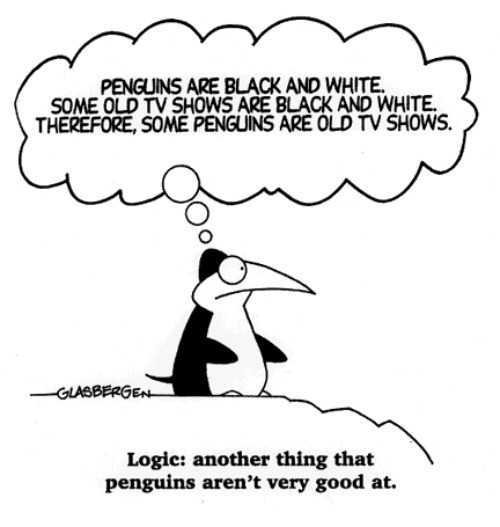
1 note
·
View note
Photo



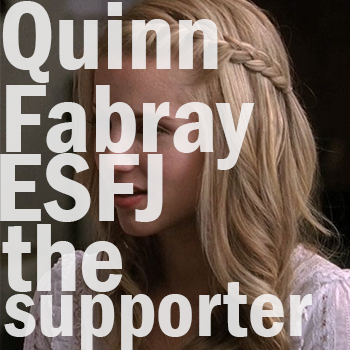

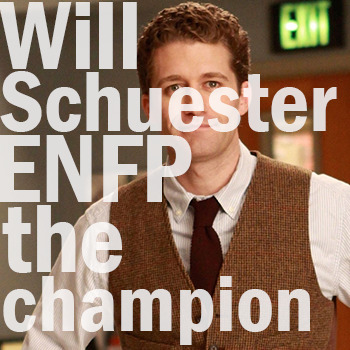
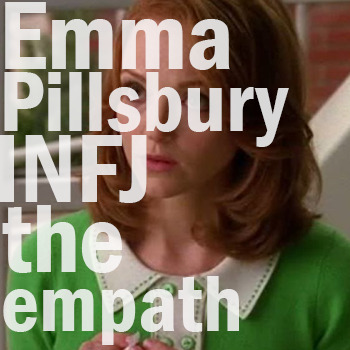

Glee MBTI [½].
Kurt Hummel [ESFP] : ESFPs are spontaneous, gregarious, action-oriented and of the moment and intensely people-centric. They are great at service roles and at making people feel really special. The ESFP is the natural entertainer, funny, animated, a chatterbox, anecdotal and making people feel special. They know lots of people and prefer to be at the centre of things, surrounded by appreciative folk who let them fly. ESFPs are sensitive which means they are excellent at picking up on how other people are feeling and ‘feeling their pain.’ However, this sensitivity cuts both ways and they can get hurt if they don’t feel appreciated and can take things very personally and to heart. (Prelude Character Analysis)
Rachel Berry [ENFJ] : The ENFJ will excel best in roles where they can satiate their need for action and drive with their passion for people. Their considerable talents are best served with a role where they feel valued and where they can see the results of their efforts. ENFJs are people who want to work long and hard if they believe in something and also are inordinately caring and this can mean they take on too much, sometime overburdening themselves with the problems of others or accepting too many tasks. It is for this reason that ENFJs can suffer occasional burnout as they want to please and to be appreciated and so their first reaction is often to say: “leave it with me” and their nature means they just have to complete so if this is not possible it can deflate the ENFJ who wants to do good and tick all the boxes off. When they are under such pressure, (to be fair this pressure is self-induced), they can become more sensitive and take criticism poorly, focusing on the negatives. (Prelude Character Analysis)
Finn Hudson [ISFP] : Because of being gentle, quiet and understated may be ignored, neglected or overlooked in organisations. Yet their caring side means that they can be the most loyal and supportive staff members to those who do understand and value them and they will create harmony and underpin others in their suggestions. However, such support, as with all ISFP attributes, will be behind the scenes, indemonstrable and essentially practical. Their desire for harmony means the ISFP may withdraw in times of conflict or even find it difficult to make tough calls as intrinsically they don’t like too much responsibility. The ISFP needs to feel appreciated, often for who they are, otherwise they can become demotivated and disengage. (Prelude Character Analysis)
Quinn Fabray [ESFJ] : Asking an ESFJ to sit and think things through or reflect before ‘doing’ is not easy as their natural propensity is for action; thinking is seen as a passive and useless activity. This means they will jump immediately into ‘sorting it all out,’ when at times if they’d taken a little longer to think they may have come up with a better solution. They can struggle to take on board the opinions of other people as they have built their norms over such a long time that they believe clearly in a ‘right way’ and a ‘wrong way’ of doing things. This can see the ESFJ become a controlling and even a little harsh if things are not done properly, ie their way. This trait also means that they are focused on solving problems right now and this may negate looking at the wider ramifications and long-term issues, as they want to get straight down to it and ‘do.’ (Prelude Character Analysis)
Mercedes Jones [ESTP] : The ESTP is constantly looking for action, for the 'next big thing,' throwing themselves in social activities, difficult situations and projects with real zest and energy. The imaginative, reflective life is not for them, preferring to jump in and see what happens. Supreme optimists, ESTPs will work long and hard on activities which interest them but can switch tack entirely once they begin to lose this interest. The ESTP does not enjoy the constraints of deadlines, schedules or end-dates so if an ESTP does exactly what you asked them, it is only because they wanted to do so in the first place. ESTPs love to be at the centre stage, demonstrating feats of wonder and daring. (Prelude Character Analysis)
Will Schuester [ENFP] : The ENFP likes to be surrounded: by people, by variety by interests and this drives them and stimulates their energy. They need to be busy, juggling lots and are great in moments of crises and when things are heating up. Their natural flexibility and caring nature means they will be loyal and positive members of staff. Very little will get the ENFP down and they will work tirelessly for the cause, until it becomes tedious then they have to force themselves or go and find something to start. Their positive attitudes are great for engendering enthusiasm and maintaining morale. However sometimes they may get taken for granted and not get the respect or affirmation they feel they deserve. They may have trouble taking tough decisions as they genuinely want to see good in others and in that respect they are great champions of and harmonious developers of people. (Prelude Character Analysis)
Emma Pillsbury [INFJ] : Although gentle, and preferring to be out of the limelight, the INFJ will work long and hard behind the scenes to maintain harmony but they are also intensely independent, of both of thought and spirit, and will be outspoken in their defence of human values, the downtrodden, and the oppressed. Earnest and responsible INFJs often see themselves on a mission, and they take their missions very seriously. The views of the INFJ are very personal, built up over a long time and so anything which may be perceived as questioning their values may be dealt with in an unusually direct way, surprising those who saw only the quiet INFJ. They can struggle when their ideas are not workable and may neglect to paint in the brutal facts of reality into their lofty ideals. The INFJ also often takes on too much and this can see them become overwhelmed and de-energised and withdraw to bring their energy levels back up. (Prelude Character Analysis)
Sue Sylvester [ISTP] : The ISTP will be full-on, or full off - they don’t do shades of grey. The ISTP moves seamlessly from quiet bystander to active participant and leader in one fell swoop, then back again to invisible, apparently disinterested introvert. They are at their best in times of crisis and challenge, but will have little appetite for follow-through, as they will be waiting for the next challenge. Independent and self-contained the ISTP, although not unfriendly, will be difficult to get to know as they tend to reveal only what they choose to and that is over time when they are ready. The ISTP focus can result in them not noticing the personal needs of others. The ISTP is generally not comfortable with emotions and tends to neglect this aspect of themselves and others. (Prelude Character Analysis)
#glee#mbti#part 1#1/2#kurt hummel#rachel berry#finn hudson#mercedes jones#quinn fabray#will schuester#emma pillsbury#sue sylvester#ESFP#ENFJ#ISFP#ESTP#ESFJ#ENFP#INFJ#ISTP
53 notes
·
View notes